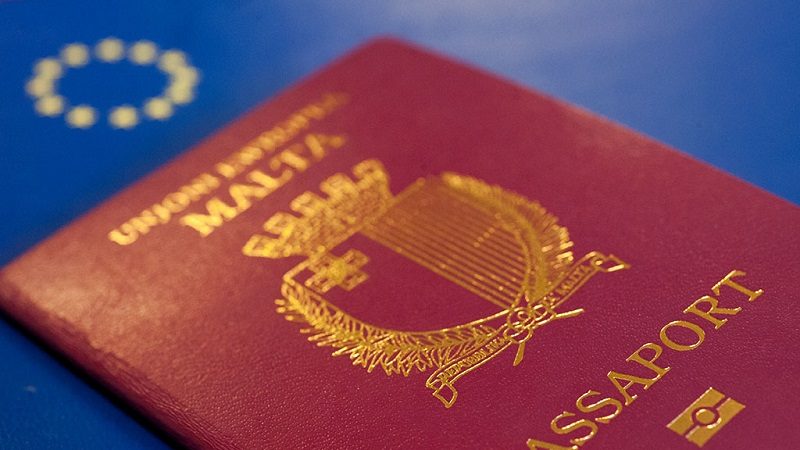Living in Malta quite often feels like you’re in a parallel universe. The standards we set for ourselves as a nation are in stark contrast to many other countries we love comparing ourselves to.
It’s not that Malta is all bad and the rest of the world is perfect. But we do have a higher threshold of tolerance for bullshit.
While the UK announced its intention to halt its ‘golden visa’ scheme as a part of a crackdown on money laundering, Malta hails the success of its cash-for-passports scheme.
When it comes to the lucrative global citizenship industry it really does feel like Malta is in a parallel universe.
MEPs have called on member states to phase out all citizenship or residency by investment schemes.
The Organisation for Economic Co-operation and Development said that Malta’s scheme could potentially offer a back-door to money-launderers and tax evaders.
EU Justice Commissioner Věra Jourová has said she is “especially alarmed” with Malta’s golden passport scheme as the EU is preparing a crackdown on member states who offer such schemes in a wider drive against corruption and money laundering.
A joint investigation by Transparency International and the Organized Crime and Corruption Reporting Project singled out Malta for offering one of the most risky schemes for tax evaders and money launderers.
READ MORE:
Henley & Partners rake in €29 million from Malta’s cash-for-passport scheme
But it seems that all of the above are wrong. The scheme’s regulator Carmel de Gabriele reassured us that the sale of passports will “play an extremely important role in the country’s infrastructural boom and social development” in his latest report.
Dismissing criticism from home and abroad as “totally undue and highly inconsiderate bad publicity,” the regulator said “I honestly feel that one cannot but note with great disconcertment and disbelief that such bad publicity was instigated without one going primarily into the intricate details with which this Programme has been governed since its launch…”
In its report, Transparency International warned that some countries are not even applying the same minimum checks on new citizens that banks are supposed to apply to their high net-worth customers.
To prove the point, the Maltese regulator warned local banks and financial institutions not to put the running of the scheme “at undue risk” by implementing “a number of over-rigid and very often insensitive and insensible measures.”
In other words he is telling the banks to close an eye, or two, when doing their due diligence.
To add salt to the wound, the regulator’s warning was followed by a threat.
The regulator said that if banks do not back down and do as told, “undoubtedly a totally different legal route needs to be devised without further undue delay.”
This, he added would ensure that the applicants’ contributions “get through to Malta’s coffers in an orderly manner without obliging a successful applicant and the MIIPA to pass through the unwarranted and uncalled-for ordeal brought about by local banks following the months-long internationally acclaimed due diligence processes and procedures that are adhered to by the MIIPA before an applicant is finally accepted to become a citizen of Malta under this Programme. Otherwise, we are simply shooting at our own two feet!”
Another pearl of wisdom provided by the regulator deals with the publication of names of successful applicants. After initial resistance to publish the names, government decided to publish the names in an official list that contains all the people naturalised and registered as citizens of Malta, effectively hiding the names in endless lists.
Yet, the regulator said that agents complaints that many millionaires did not want their names published, not because they have something to hide, he said, but because they value their privacy. Therefore, the regulator put forward a genial proposal recommended by an agent; provide the names to MPs who would be bound by an oath of secrecy. Really?
The regulator also dedicated a few paragraphs to the criticism on the due diligence process.
“All those who oppose all forms of CBI (Citizenship by Investment) Programmes have a right to cherish and retain such an opinion for whatever reason and ought to be respected in any case. No one should, however, act irresponsibly and resort to misleading the public or creating any fabricated outcries against such Programmes by disseminating ill or malignant information to the public at large in order to achieve support and adherence to any such opposing views,” the regulator said.
To ensure that everything was in order, the regulator said his office “focused its attention on the type of due diligence carried out and has tried to establish whether decisions taken (to recommend approval or rejection) reflected the outcome of the checks.”
And as you might have already guessed, the regulator concluded that there were no issues at all.
So there you go, if you are one of the scheme’s detractors you can cherish your opinion but there is absolutely nothing to worry about. And if you insist on sharing your your views, go back to your universe.












